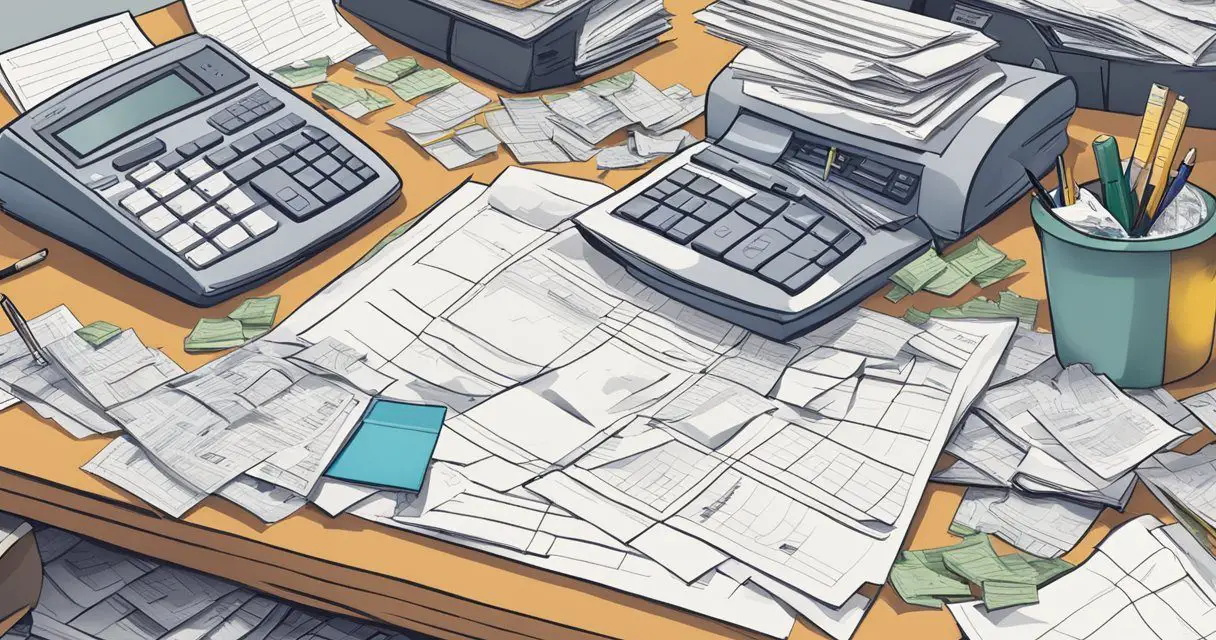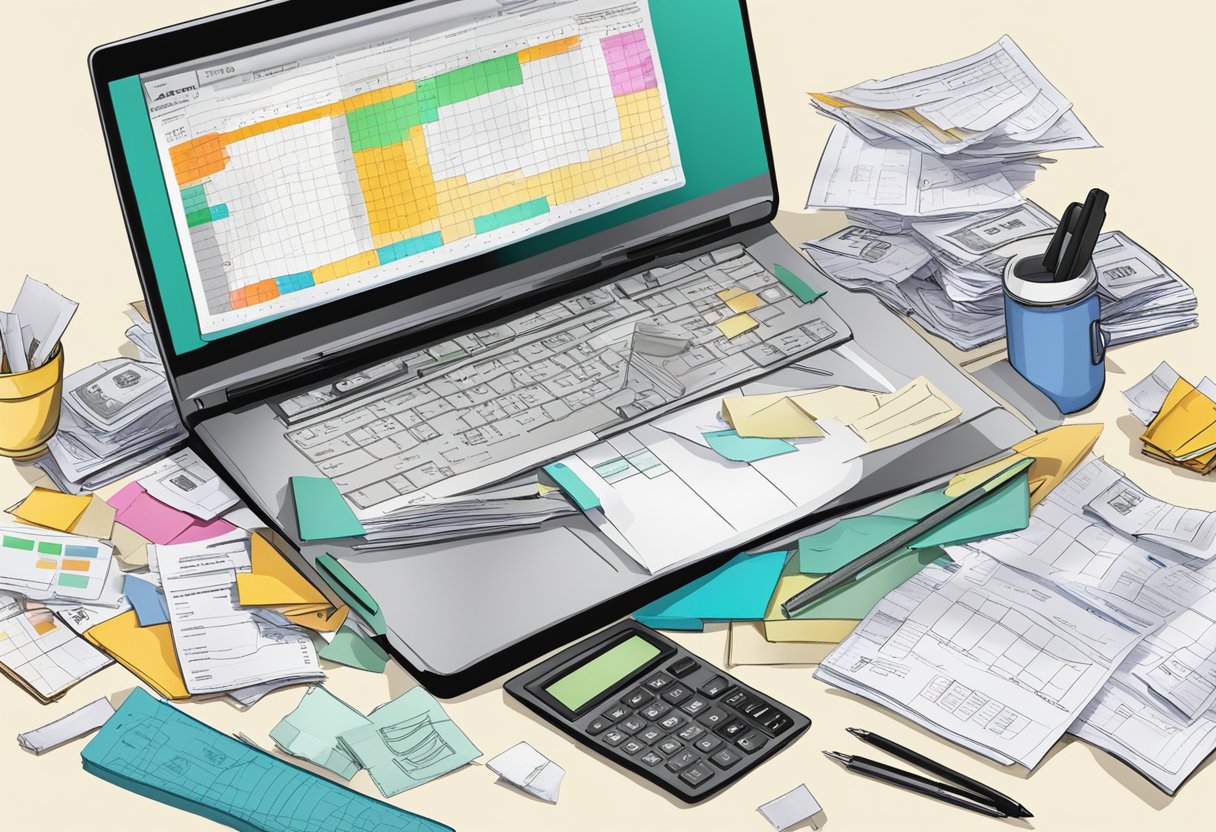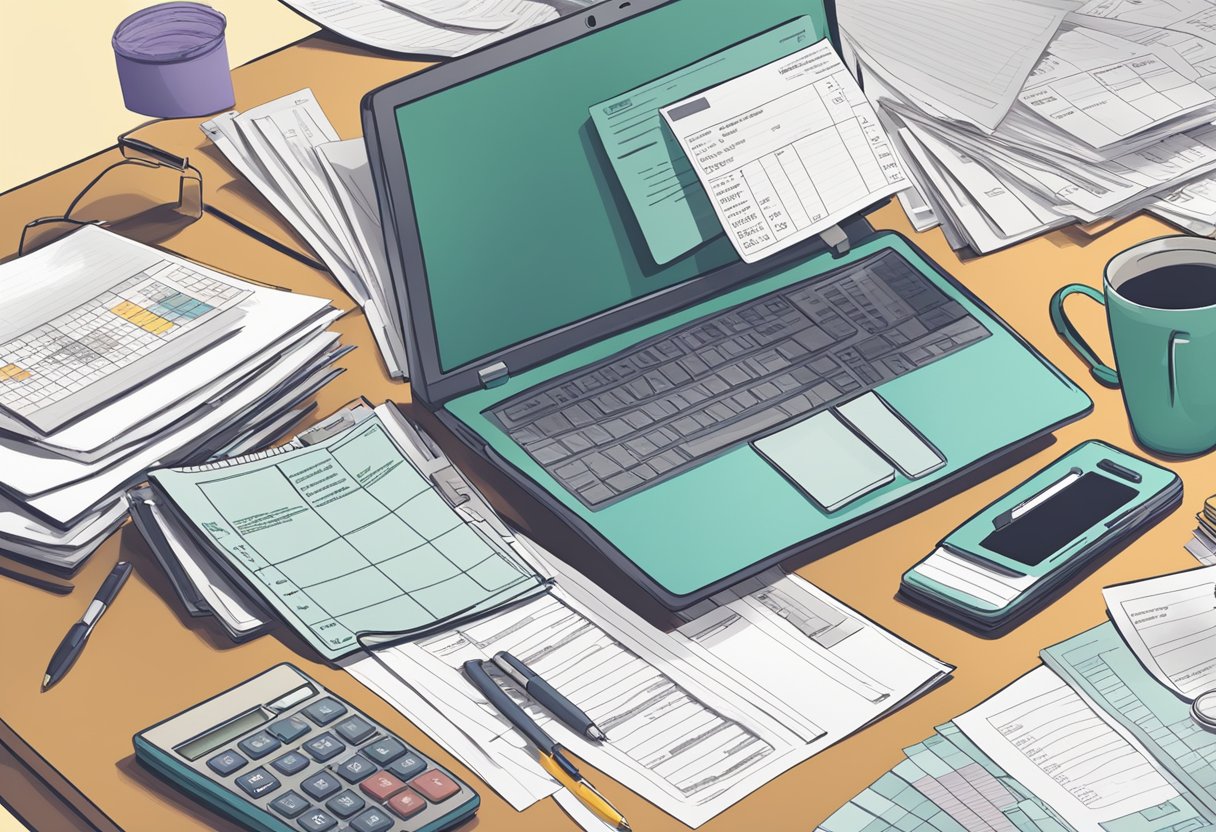Keeping track of expenses during your RV adventures might not be the most exciting task, but it’s super important.
Knowing where your money is going helps you enjoy your travels without unexpected financial surprises.
Mastering expense tracking can make your RVing experience smoother and more enjoyable.
Would you like to save this article?
When you understand your spending, you can plan better and avoid feeling stressed about money on the road.
Keeping your finances in check lets you focus more on the fun parts of RVing, like discovering new places and meeting new people.
1) Procrastinating with recording expenses
Putting off recording your RV expenses can really throw a wrench in your budgeting plans.
It’s easy to let receipts pile up, especially when you’re having fun on the road. But the longer you wait, the harder it becomes to keep track of where your money’s going.
The best way to tackle this is to set a routine. You might record your expenses daily or choose a specific time weekly.
Find what works for you and stick with it. This habit helps you keep an accurate record and avoid surprises later.
Using apps or digital tools can make this task easier too. Many apps can scan and organize your receipts, saving time and energy.
This way, you won’t have to worry about losing important details.
2) Failing to Categorize Expenses
Forgetting to categorize your expenses can make managing your RV budget a real headache.
When you keep receipts without organizing them, it becomes tough to see where your money is going. This may lead to overspending in areas you didn’t plan for.
To avoid this mistake, create clear categories for your expenses. For example, separate fuel, groceries, maintenance, and campground fees.
This helps you track spending patterns and adjust your budget as needed.
Using an app or spreadsheet can make categorizing easier. These tools help you update expenses quickly and keep everything in one place.
This way, you can make better decisions about your RV lifestyle.
3) Ignoring minor costs
When you’re managing RV expenses, it’s easy to overlook small costs.
These minor expenses, like parking fees or public laundry, might not seem like much on their own. Yet, added together, they can really affect your budget.
Even things like snacks for the road or occasional tolls can add up. By keeping an eye on these smaller costs, you’ll have a clearer picture of where your money is going.
It might seem tedious at first, but it makes a big difference.
Consider using an app to track all your purchases, no matter how small. This helps you see patterns and adjust your spending when needed.
In turn, this can help you avoid surprises at the end of the month. A little effort goes a long way in keeping your finances in check.
4) Overlooking recurring subscriptions
When living in an RV, it’s easy to forget about small subscriptions that add up.
Apps, streaming services, and memberships might slip your mind. These subscriptions repeat monthly, and not keeping track of them can mess up your budget.
It’s important to regularly review your spending and cancel the ones you don’t use.
By managing these charges, you can save money. Set up reminders to check these subscriptions at least once a month.
This way, you’re only paying for what you enjoy and actually use.
5) Not setting aside funds for repairs
One big mistake people make with RV expenses is not having extra cash ready for repairs. RVs, just like any vehicle, can break down unexpectedly.
Parts wear out, systems stop working, and tires can go flat. If you’re not ready for these costs, they can quickly mess up your budget.
To avoid this, it’s smart to save a small amount of money each month specifically for repairs. Think of it as an emergency fund for your RV.
Even a little bit each month can add up, giving you peace of mind when something needs fixing.
You might consider setting up a separate savings account just for these expenses. That way, you’ll have a clear view of what’s available for repairs without dipping into your other funds.
Setting aside money for repairs ensures you’re prepared for unexpected problems.









